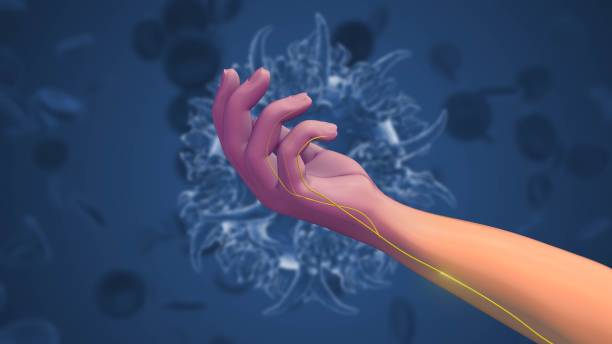Research lends new viewpoints for treating sepsis
When the immune system fails to function properly, individuals become more vulnerable to infections from viruses, bacteria, or fungi. Researchers at Radboud University Medical Center have discovered that an existing drug can reactivate malfunctioning immune cells. This breakthrough offers promising directions for further studies in ICU patients suffering from sepsis.
Sepsis is responsible for around 20% of deaths worldwide and is the leading cause of death in intensive care units. It occurs when the body’s immune response to an infection becomes dysregulated, leading to organ failure, such as in the kidneys or lungs. Many sepsis patients are critically ill and require ICU care, with roughly one-third not surviving. While it was once thought that sepsis-related deaths were primarily due to an excessive immune reaction that harms organs, it is now understood that a severely weakened immune response—known as immune paralysis—can also be fatal. In this state, patients struggle to fight off existing infections and are at high risk for new ones, particularly those caused by fungi.
Studies in healthy volunteers
One of the major challenges facing researchers worldwide is how to correct the dysregulated immune response seen in sepsis patients. To tackle this, a team at Radboudumc in Nijmegen is studying immune responses in healthy volunteers. By injecting these participants with small amounts of endotoxins—fragments of dead bacteria—they are able to safely induce a controlled immune reaction. This approach allows the team, including ICU researcher Guus Leijte, to monitor the immune system in detail during both the initial inflammatory phase and the subsequent immune paralysis phase.
In the lab, first author Farid Keramati analyzed immune cells collected from participants’ blood and bone marrow. He discovered that a specific type of immune cell—monocytes—failed to mature properly following the acute immune response and showed impaired function. Since monocytes play a key role in defending the body against infection, this finding reveals an important mechanism behind immune paralysis.
Keramati, who was working at the Princess Máxima Center during the study, explains: ‘This comprehensive analysis gave us a detailed understanding of what happens during an immune response. This provided us with clues for potential treatments that could revive the body’s weakened defense against infections.’
Drug stimulates immune cells
Afterwards the scientists treated the monocytes in the lab with an existing drug called interferon beta. This medication is commonly used to treat multiple sclerosis (MS), a condition in which the immune system malfunctions and causes inflammation in the central nervous system. When applied to the paralyzed monocytes, interferon beta had a positive effect: the cells began to mature and function more effectively.
Next Steps in Immune Paralysis Research
Lead researcher Matthijs Kox emphasized that while these findings are encouraging, additional research is needed to build on these results and explore their potential in clinical settings.
‘So far, we have only studied the effect of interferon beta on cells in the laboratory. The next step is to administer this drug to healthy participants during the later phase after administration of endotoxins. We want to investigate if this can counteract immune paralysis.’ In another possible follow-up study, the researchers aim to investigate whether interferon beta can improve the function of monocytes from patients with sepsis in the ICU. ‘If that’s the case, we may have a potential treatment to help these patients,’ says Kox.





